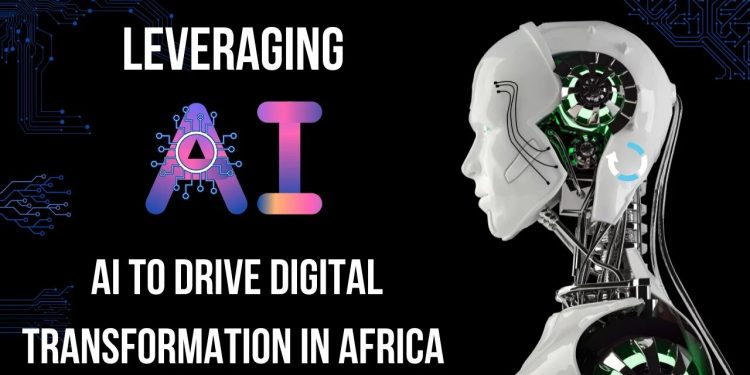Africa stands at a pivotal moment in its digital transformation journey. With artificial intelligence poised to reshape economies and societies worldwide, the continent has a unique opportunity to harness its power for human development. AI can revolutionize healthcare, agriculture, education, and governance, propelling Africa into a new era of economic prosperity. However, for Africa to fully capitalize on AI, foundational digital infrastructure—particularly in energy and data connectivity—must first be strengthened. Without this groundwork, the digital divide may widen, leaving millions unable to benefit from the advancements AI can offer.
AI has the potential to accelerate digital transformation across various sectors in Africa. By leveraging machine learning, data analytics, and automation, African nations can optimize processes, enhance service delivery, and create new economic opportunities. Some of the most promising applications of AI in Africa include healthcare, where AI-driven diagnostics and telemedicine can bridge the gap in access, particularly in rural areas with limited medical professionals. AI-powered platforms like Zipline in Rwanda, which uses drones to deliver medical supplies, demonstrate how technology can improve healthcare outcomes. In agriculture, precision farming using AI can help farmers maximize yields, reduce waste, and make informed decisions. Organizations like Kenya’s Twiga Foods use AI to optimize supply chains, reducing food loss and improving market efficiency. AI-powered platforms can also provide personalized learning experiences for students in remote areas. Initiatives like M-Shule in Kenya use AI to offer adaptive learning for students through SMS-based tutoring. AI-driven fintech solutions can expand financial access to underserved populations. Mobile money services like M-Pesa in Kenya have already transformed financial inclusion, and AI-driven credit scoring is enabling small businesses to access loans without traditional collateral. AI can improve governance by enhancing public service delivery, automating administrative tasks, and fighting corruption through predictive analytics.
Despite these opportunities, Africa’s AI-driven digital transformation is constrained by inadequate infrastructure. The two most pressing challenges are energy deficits and weak data connectivity. AI systems require vast computing power, which depends on stable and affordable electricity. Yet, Africa suffers from chronic energy shortages, with over 600 million people lacking access to electricity. Frequent power outages disrupt businesses and limit the ability of data centers to function efficiently. Countries like Nigeria and South Africa experience rolling blackouts, making it difficult to maintain the consistent energy supply that AI technologies demand. For AI to thrive, reliable internet connectivity and widespread data accessibility are crucial. However, Africa has one of the lowest internet penetration rates globally. While mobile broadband has expanded, many rural areas still lack high-speed internet. The cost of data remains high, and fiber-optic networks are underdeveloped in many countries. Without reliable connectivity, AI-driven solutions cannot scale effectively.
Unlike developed economies where AI is increasingly replacing human labor in certain tasks, Africa is more likely to use AI as an augmentation tool rather than a substitute for jobs. This is due to the continent’s labor-intensive economy and the high levels of informality in its job market. In agriculture, AI can provide predictive insights on weather patterns and soil health, enabling farmers to make better decisions rather than replacing them with automation. In customer service, AI-powered chatbots can assist businesses in handling inquiries efficiently while still requiring human oversight for complex customer interactions. In healthcare, AI can support doctors with diagnostics, but medical professionals remain central to patient care. This trend suggests that AI in Africa will more likely enhance productivity, create new job roles, and improve service delivery rather than lead to widespread job displacement.
In the manufacturing and logistics industries, AI-driven automation can optimize supply chains, reduce waste, and improve production efficiency. However, unlike highly automated factories in advanced economies, African industries may focus on human-machine collaboration, where AI systems assist workers in their tasks rather than replacing them. For instance, AI-powered predictive maintenance tools can help reduce equipment breakdowns in factories, minimizing downtime and increasing productivity without eliminating the need for human technicians. Similarly, in retail and e-commerce, AI can help businesses forecast demand, manage inventory, and personalize customer experiences, leading to more efficient operations and better service delivery.
One of the critical factors influencing AI adoption in Africa is the continent’s entrepreneurial spirit. Many African startups are leveraging AI to address local challenges, demonstrating that AI is not just a technology for large corporations but also a tool for small and medium-sized enterprises (SMEs). In Nigeria, for example, companies like Kudi and Lidya use AI to provide financial services to the unbanked, leveraging machine learning algorithms to assess creditworthiness and offer microloans. In South Africa, Aerobotics employs AI-powered drone technology to assist farmers in monitoring crop health and improving agricultural productivity. These innovations highlight the potential for AI to drive economic growth and job creation by enabling businesses to operate more efficiently and serve previously underserved markets.
While AI presents immense opportunities, its adoption also brings risks, particularly in exacerbating digital exclusion and economic disparities. If AI development is concentrated in urban areas or among well-resourced groups, millions of people in underserved regions may be left behind. Limited access to AI-driven services could deepen social inequalities, making it harder for disadvantaged communities to participate in the digital economy. AI could also widen the economic divide between African nations that invest in AI infrastructure and those that do not. Countries with advanced digital ecosystems may attract more foreign investment, while others risk being left out of the AI-driven global economy. Moreover, within countries, socio-economic disparities could widen, as those with digital skills benefit more from AI adoption than those without.
There is also a growing concern about data sovereignty and the ethical use of AI in Africa. Many AI technologies rely on vast amounts of data, much of which is collected and processed by foreign tech companies. This raises questions about who controls African data and how it is used. If African governments and businesses do not develop their own AI capabilities and data policies, they risk becoming dependent on foreign technologies, which could have implications for national security, privacy, and economic autonomy. Establishing robust data protection laws and fostering local AI research and development will be crucial in ensuring that AI benefits Africa on its own terms.
The development and integration of AI in Africa are critical to securing the continent’s economic future, particularly in the face of global uncertainties such as economic downturns, climate change, and shifting geopolitical landscapes. To unlock AI’s full potential, African governments and private sector stakeholders must prioritize investments in digital infrastructure. Expanding electricity access, building data centers, and improving broadband connectivity should be at the core of national development agendas. Public-private partnerships can accelerate these efforts, ensuring sustainable infrastructure growth. For AI to drive inclusive growth, Africa must invest in human capital. Expanding AI education, promoting digital literacy, and fostering homegrown AI talent will empower Africans to participate in the digital economy. Programs such as Nigeria’s Data Science Nigeria and South Africa’s AI Expo Africa highlight efforts to build AI expertise across the continent. Regulating AI responsibly is essential to ensuring its benefits are equitably distributed. African nations should develop policies that promote responsible AI development, safeguard data privacy, and prevent algorithmic biases. Regional cooperation through bodies like the African Union can help establish unified AI governance standards.
AI has the power to transform Africa’s economic landscape, improve public services, and drive human development. However, without addressing critical infrastructure deficits, particularly in energy and data connectivity, the continent risks falling behind in the AI revolution. The need for proactive investment in digital infrastructure, inclusive AI policies, and human capital development cannot be overstated. In a world where AI is increasingly shaping global economic power, Africa must position itself strategically to ensure that its people benefit from this technological revolution rather than being left behind.










